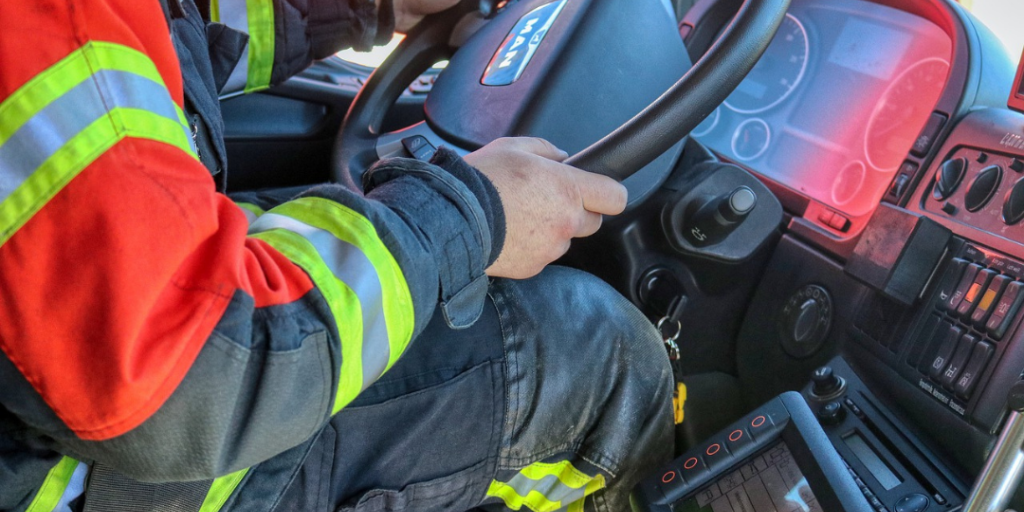Operating forklifts efficiently during the summer months requires special attention due to the increased temperatures and potential impact on both the forklift and its operator. Given that we had temperatures of up to almost 40 degrees last summer in the UK, now is the time to prepare you fleet in case the same happens again this year.
To ensure safety, productivity, and longevity of forklifts, it is essential to conduct specific checks, perform necessary maintenance tasks, and remain vigilant in identifying potential issues. We have talked about this in other blogs on our site covering forklift maintenance, today we are going to take a look at what you might want to think about when operating your forklifts in hotter weather.
Forklift Operation in Hotter Weather: Pre-Operation Checks
Before using a forklift in hot weather, it is crucial to perform the following checks:
Cooling System: Verify that the forklift’s cooling system is functioning optimally. Check the coolant levels, hoses, and radiator for any signs of leaks, blockages, or damage. Clean debris from the radiator to prevent overheating.
Battery: High temperatures can adversely affect a forklift’s battery. Inspect the battery for signs of corrosion, loose connections, or damage. Ensure proper electrolyte levels and charge the battery as needed.
Tires: Examine the tires for wear, inflation, and damage. Underinflated tires can increase rolling resistance and generate excess heat. Maintain proper tire pressure to maximize performance and prevent blowouts.
Fluid Levels: Check and replenish all essential fluids, such as hydraulic fluid, engine oil, and transmission fluid. Heat can accelerate fluid consumption, so monitor levels more frequently during hot weather.
Filters and Belts: Inspect air filters, fuel filters, and drive belts for dirt, debris, or signs of wear. Replace or clean as necessary to ensure optimal performance.
Operator Comfort and Safety
The comfort and safety of the forklift operator are paramount in hot weather conditions. You want to ensure that your team is able to work when the temperature goes up and it can be easy to prepare for this. Consider the following:
Personal Protective Equipment (PPE): Provide operators with lightweight, breathable clothing and sun protection such as hats, sunglasses, and sunscreen.
Ventilation: Ensure the forklift cabin is adequately ventilated. If possible, consider installing or using fans to improve air circulation.
Hydration: Encourage operators to stay hydrated by providing access to cool drinking water and reminding them to take regular breaks.
Operator Training: Reinforce the importance of safe forklift operation, particularly in hot weather. Emphasize the need for extra caution and awareness due to potential heat-related fatigue and discomfort.
What can you do before the weather gets hot?
Preventative maintenance is also key here. Performing regular maintenance tasks during the summer months will help prevent breakdowns and extend the life of your forklift. Consider the following:
Cooling System Servicing: Flush and refill the cooling system as per the manufacturer’s recommendations. Ensure all cooling components are in good condition.
Lubrication: Grease and lubricate the forklift’s moving parts according to the manufacturer’s guidelines. Heat can cause increased friction, making proper lubrication even more critical.
Filter Replacement: Regularly change air, fuel, and oil filters to maintain optimal performance. Dust and debris accumulation can be more pronounced during summer.
Electrical System Inspection: Check the wiring and electrical connections for signs of damage or overheating. Replace any worn-out components promptly.
Taking a look at the whole picture – changes to Operations during hotter weather
To ensure safe and efficient forklift operation during hotter weather, it might be a good idea to look at how your operations work overall. There can be simple adjustments to working conditions or the way that things are usually done which will pay off to make things easier in the hotter weather.
Monitor Workloads: In high temperatures, forklifts may experience decreased efficiency and performance. Adjust workloads accordingly and allow for additional cooling breaks.
Storage: Park the forklifts in shaded or covered areas whenever possible to reduce exposure to direct sunlight. This helps prevent excess heat buildup and prolongs the life of sensitive components.
Regular Inspections: Conduct routine inspections throughout the day to identify potential issues. Check for any signs of overheating, unusual noises, or fluid leaks. Address any concerns promptly to prevent further damage or accidents.
Load Management: Be mindful of the weight and size of the loads being lifted. Excessive loads can strain the forklift’s components and increase the risk of overheating. Follow the manufacturer’s guidelines for maximum load capacities.
Surface Conditions: Hot weather can cause pavement and outdoor surfaces to become uneven or softer. Pay attention to the ground conditions to ensure stability and avoid potential accidents or tip-overs.
Regular Cleaning: Dust and debris tend to accumulate faster during the summer months. Clean the forklift regularly, especially around the engine and cooling components, to maintain proper airflow and prevent clogs.
Emergency Preparedness: Have a well-defined emergency plan in place, including procedures for overheating, fire, and heat-related incidents. Ensure all operators are trained in these procedures and have access to necessary safety equipment.
Running forklifts in hotter weather requires additional attention and maintenance to ensure safety and efficiency. Remember, the well-being of both the forklift and its operators is crucial for a successful and productive operation in hot weather conditions.
By planning now for times when the weather might be hotter, you’ll be ahead of the game and know that you and your team can continue to deliver whatever the weather outside.
To find out more about what we can offer across forklift sales, hire and servicing, get in touch with our team today.







